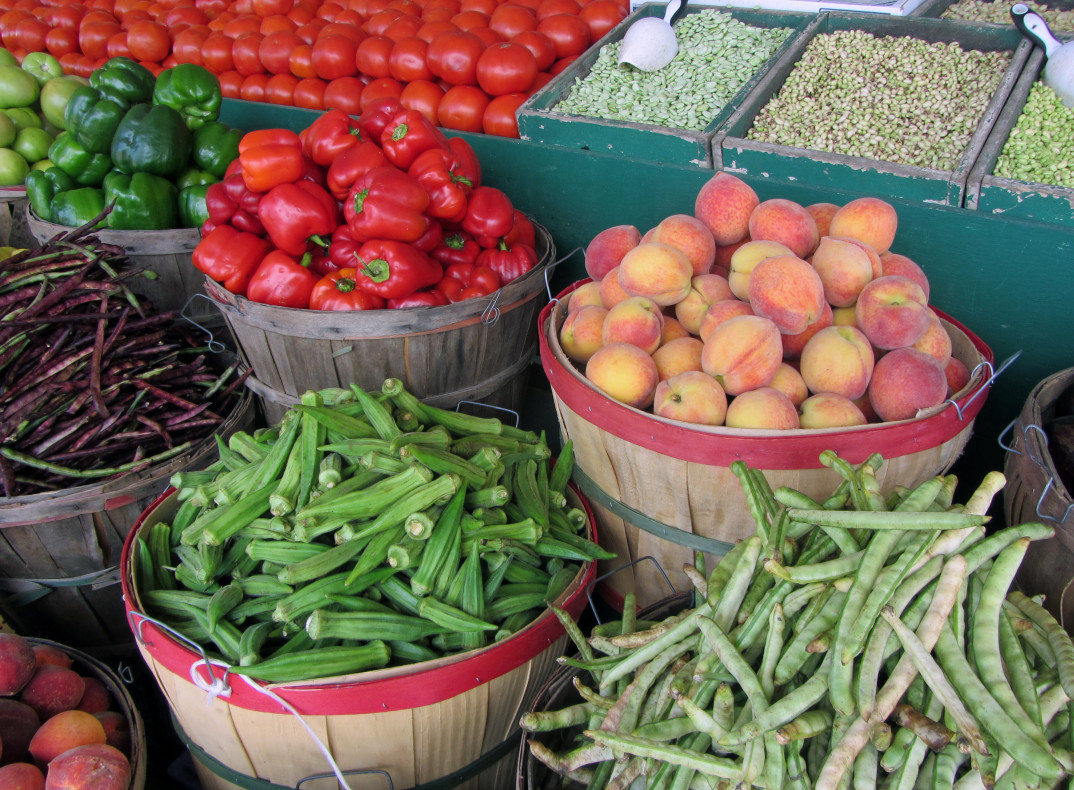Land of Plenty?

It’s no secret that living a healthy lifestyle is a key factor when it comes to leading a long, happy life. Public discourse on this topic has grown increasingly over time with diet trends and programs, nutritional supplements, and even pharmaceutical and medical solutions becoming a part of our everyday lives. We are infiltrated on a daily basis with encouragement to put healthier things into our bodies in the form of TV and film references, news outlets, social media, and advertisements, just to name a few. First Lady Michelle Obama’s advocacy for creating a healthier generation, such as her “Let’s Move” campaign and mandated modifications to school lunches, has become very visible in the public eye and is a well-known aspect of her work in the White House. All of these factors combined, plus many more, make it clear that as a society, U.S. citizens are more aware than ever of the importance of staying active and eating well.
However, as healthy eating discourse increases, two factors are consistently left out of this discussion: cost and access. Natural, organic, and overall more nutritious foods like those in the fresh produce section often carry a significantly higher price tag than processed foods more commonly found in the freezer aisle or in boxes and cans. As important as having a well-balanced diet is, low-income families often must turn their focus primarily to purchasing food that is cheap enough to last the whole week. In lower-income neighborhoods, many supermarkets carry fewer fresh ingredients and more cheap and processed ones than a higher-income neighborhood with a Trader Joe’s or Whole Foods, for example. Lower-income neighborhoods also typically have smaller supermarkets with fewer food choices in general or have fewer supermarkets, making it harder for people to get to.
In April of 2015, Gwyneth Paltrow decided to accept celebrity chef Mario Batali’s #FoodBankNYCChallenge to prove the difficulty that families living on the federal Supplemental Nutrition Assistance Program (SNAP) have to face, especially if they want to provide nutritious food for their family. She set out with good intentions and $29, the average amount a person on food stamps receives per week, but her execution of the challenge was met with harsh criticism and disappointment. Paltrow tweeted a photo of her week’s worth of healthy food, primarily vegetables, but admitted just four days later that she was too hungry and tired to continue. While she succeeded in promoting discourse on the difficulty of living on food stamps, her bourgeois approach was criticized as unrealistic and too far removed from the reality of how low-income families must live.
And yet, typical “healthy” discourse, especially that directed at families and parents raising children, continues to ignore the essential factors of cost and accessibility when promoting nutritious food choices. Take, for example, a recent CNN health piece that highlights healthy recipes that even the pickiest of eaters will enjoy. The photo gallery states that these recipes were entered into a national “Recipes for Healthy Kids” competition back in 2010 as part of first lady Michelle Obama’s “Let’s Move” campaign, but suggests that parents use these recipes as inspiration for their back-to-school meal choices. Unfortunately, this photo gallery and tip list apparently does not consider that low-income families may not have the resources to provide healthy but less bank-account-friendly foods like quinoa, purple cabbage, chickpeas, and butternut squash for their family meals, as much as they may want to incorporate these ingredients into their cooking.
This leaves the question: How can we better discuss the issue of healthy eating and living in a way that is inclusive of people from all incomes and statuses? If we continue to discuss this subject and possible policy changes with the assumption that all people have the funds and access to eat healthier, we are further alienating a large portion of the population that deserves to be on equal footing in this discussion.




